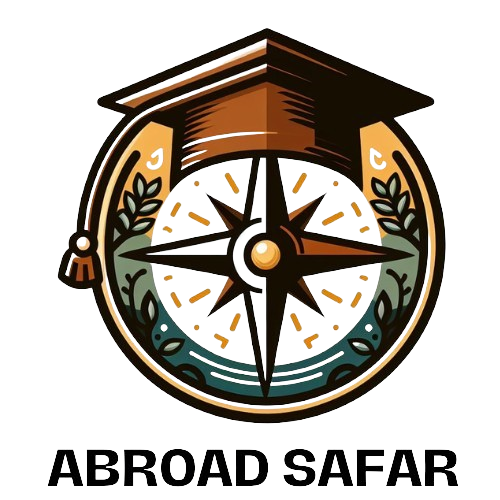Canada has again come up with another blow to international students who are dreaming of pursuing their further education in Canada. The maple country is gaining much popularity amongst the international student community as every month it has been coming with changes in the policy, whether it is doubling the GIC amount for study permits or checking the veracity of the letter of acceptance by issued institutions. After these policy changes there had been some speculation over limiting the number of international students enrolled for the upcoming years, not much surprise, that Canada has launched temporary capping to international students and made changes on post-study work permits as well.

Previously in a concrete manner, the immigration minister Marc Miller had already clarified that if the institutions are not willing to put a bar on the number of international students or would like to take bold steps then the Canadian government can do it for them.
Changes for international students
As per the statement released by Marc Miller, the immigration minister, we are making three measure changes that is related to international students
- Temporary two-year cap on international students.
- No post-study work permit for public-private partnership institutions
- Spouse would be only allowed for international students enrolled for Masters and doctoral studies as well as professional programs such as medicine and law
Temporary two-year cap on international students
Canada has been rapidly growing than any other country in the world, as per the latest trends it is becoming one of the hot destinations amongst international students, If we talk about the current statistics, The data released by Erudera, by 2022 more than 8,00,000 international students are on their study permit, whereas if we take a closer look at the approved study permit then only in 2022 more than 5,50,000 study permit got approved, thanks to the major chunk of the Indian diaspora which consisted more than 40% of the total international students’ community. As per the latest announcement, Canadian authorities have put a cap on international students’ study permit approval and dropped the number of study permit approvals by 35% of the previous year allowing only 3,60,000 international students to get enrolled in Canadian institutions for the year 2024. These temporary changes are taking place for two years and the number of requests that will be accepted in 2025 will be re-evaluated after this year.
No more public-private partnership model
As cleared out by the statement, those institutions which are following the public-private partnership or PPP model will no longer be eligible to apply for post-study work permits by the upcoming Sep’24 intake. There are many public institutions in Ontario and the British Columbia region which has tied up with private institutions to provide the same academia in the main hub such as the GTA area of Toronto. Some of the institutions are as follows :
- Georgian ILAC ( Georgian College with International Language Academy of Canada)
- Sheridan College CCTT (Sheridan College with Canadian College of Technology & Trades)
- Fleming – Toronto campus (Fleming College with Trebas Institute)
- Niagara College – Toronto (Niagara College with Toronto School of Management)
Spouse for Masters and Doctorate
The third big announcement of the day was open work permits will be accessible to only those international students who will be enrolled for Master and Doctoral programs, The other level of study programs such as undergraduate and college programs will no longer be available.

Apart from introducing the above big changes, Marc Miller also introduced attestation letter condition in which student who is applying for a study permit will have to provide an attestation letter from the province or territory w.e.f 22nd Jan’24. Provinces will have the time to set up a process till 31st March. Whereas those students would be exempted from this attestation letter who will be applying for Master, PhD or other post-graduate programs. For extending the study permit also do not requires attestation letter.
Reasoning behind taking the steps
Though Canada has gained momentum rapidly for enrolling international students and even attracting immigrants, As per the immigration policy they also shared the plan to attract 5,00,000 Immigrants by 2025 yet it has been facing many challenges which now compelled the authorities to take bold steps.
Housing Issue – Canada as a developed nation struggling with the housing problem. Not only news but the report also shows the same, as per the report by the Canada Mortgage and Housing Corporation or CMHC, there will huge gap projected to be around 3.5 million housing units by 2030. It shows that there will be 22 million units to be required by 2030 to fulfill housing availability for everyone residing in Canada.
Job Opportunities – Though Canada is known for its globally recognized degree yet many international students are struggling to find decent jobs in their domain and it is getting end up working as a delivery guy, cab driver or at the gas station.
Unethical Immigration route – it is quite popular among those people who are willing to migrate to Canada and consider student visa is the easiest one to get the permanent residency of the developed nation and increase their living standard.
Not a legitimate student experience – Most of the international students who come from developing nations such as Brazil, China, India, the Philippines, etc. try to work more hours and sometimes forget to take student experience.
Experts believe that these changes will give a little bit setback to Canada’s economy since international students play a very vital role and fuel a good amount of money in the economy but looks like Trudeau’s government would like to win the upcoming election and is not ready to take the blame of housing issues and proper infrastructure. The current changes will also motivate the students to pursue the further education in our hot destinations such as UK, USA and Europe.


